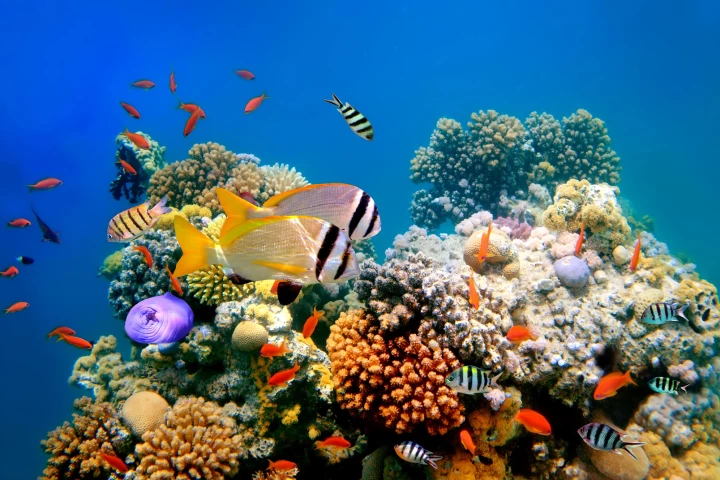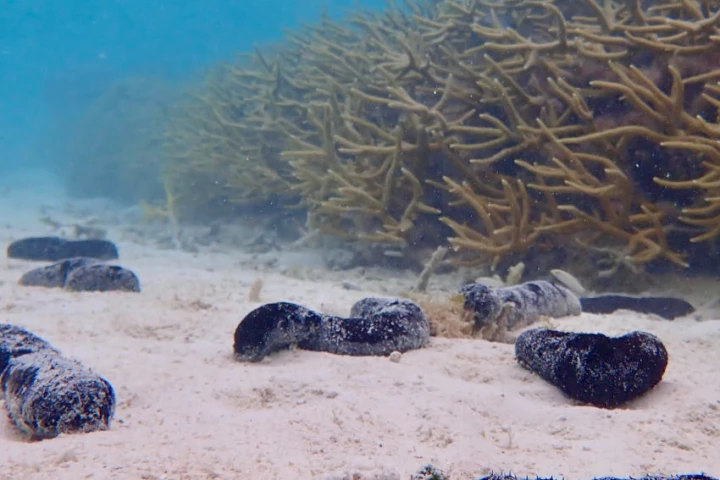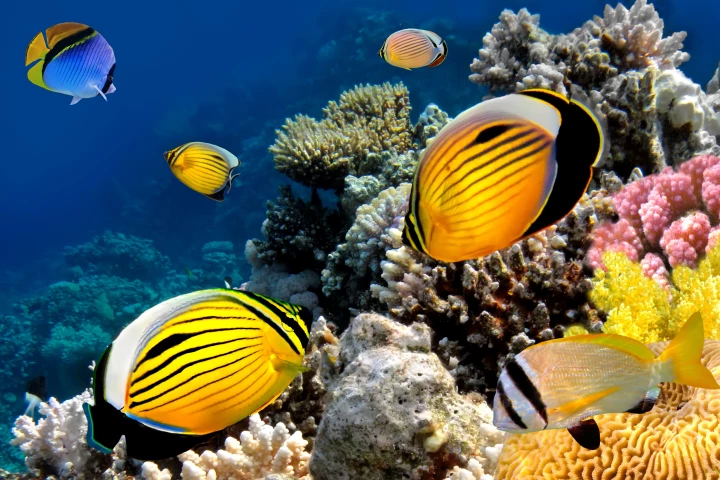Coral
-
Soft corals produce chemicals that could be used to treat human disease. Now, scientists have identified the genes that make these important chemicals, opening the door to creating a limitless supply that can be used to produce and test new drugs.
-
If you're hoping that reef-restoring coral larvae will settle down in damaged reefs, you can't just sit around and wait for it to happen. You have to get out there and entice the larvae, which is exactly what a new algae-based gel is designed to do.
-
You may not think of fish as being noisy, but they can actually be a pretty vocal bunch. A new AI system is able to quickly identify specific fish calls within general reef noise, allowing scientists to better track local populations.
-
Various groups are now growing baby corals for transplantation into the world's disappearing reefs, but they need a hand. A new robotic hand has been created to help, by carefully transferring the li'l corals between tanks as they grow up.
-
A new AI-based system allows coral reefs to be 3D-mapped faster and easier than ever before. It could prove integral to saving threatened reefs, by letting scientists study them both onsite and at their computers in their labs.
-
Scientists have discovered that audio recordings of healthy coral reefs may help attract free-swimming coral larvae to damaged ones. The finding could be a major step toward preserving the world's coral reefs.
-
Although the humble sea cucumber may not look like much, it could soon be recruited to help save the world's coral reefs. The bottom-dwelling animals have been found to play a vital role in protecting corals from harmful bacteria.
-
As coral reefs become increasingly decimated, predatory fish have fewer places to hide when stalking prey. A new study now suggests they're adapting, by using other fish as mobile hunting blinds.
-
Scientists have found a bacteria related to the human chlamydia pathogen in the corals of Australia's Great Barrier Reef – and hope it could lead to game-changing probiotic treatments designed to slow down or reverse the process of coral bleaching.
-
Scientists have discovered that the feces of coral-biting fish is brimming with beneficial symbionts. If scientists could get stressed-out coral to take them on board, essentially a 'poop transplant,' it may help reverse some forms of coral bleaching.
-
In an effort to restore damaged coral reefs, some groups are growing hardy varieties of coral in nurseries, then transplanting them onto reef beds. The Maritechture system is made to streamline that process, allowing it to be done on a larger scale.
-
Calcium carbonate is an impressive material, in that it combines strength, light weight and porosity. Scientists have devised a new bacteria-based method of 3D-printing the substance, for uses such as bone repair and coral reef restoration.
Load More











